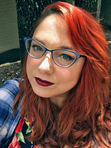Banned Books Month Guest Post from Anne Boles Levy: Making Our Own Choices
My parents never set any restrictions on what I could or couldn’t read. Anything in print was fair game, even the books on a musty basement shelf put deliberately a little out of reach – not enough to seem off-limits, but just enough not to be obvious.
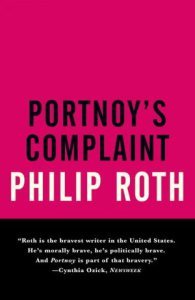
Vintage, Reprint Edition, September 1994.
That’s where Mom, a nurse, kept her anatomy text, and Dad put his leather-bound set of the Harvard Classics. And where I found Philip Roth’s PORTNOY’S COMPLAINT the summer I turned 16. I was living in the basement, thanks to some houseguests who either couldn’t or wouldn’t leave and took over my sunlit bedroom.
I’d been banished to the basement office, with its mildewy shag carpet and brown-paneled walls. One tiny, cobwebbed window shed weak light onto a lumpy metal cot Mom had set up for me. It was 1979, and I spent my summer nights with Blondie cranked up on the FM dial, reading under the flickering overhead light with books plucked from the not-obvious shelf. My parents were smart and well-read, with eclectic tastes, so I made short work of John Hersey’s HIROSHIMA and Ray Bradbury’s FAHRENHEIT 451, a collection of Isaac Asimov short stories … and Roth.
At first, I didn’t know what to make of the strange, meandering confessions of a Jewish everyman in search of the perfect blow job, preferably from a blonde, gentile woman. I wandered around the house with it, leaving it neatly bookmarked as Mom always insisted, not thinking about my parents’ possible reactions. It didn’t occur to me they’d object. They never did.
I decided it was more annoying than shocking. I knew a lot of Jewish men – having been born into a family of them – and no one I knew matched Roth’s whiny, neurotic, sex-obsessed wretches. I dismissed the book as not-my-taste and not-my-reality.
When I’d finished, a different book appeared in my hands – I don’t recall which one. I read them the way chain smokers light up one cigarette with the butt end of the last.
Finally, my parents caught me wandering through the family room in my usual distracted fog and asked, ahem, what I’d thought of PORTNOY’S COMPLAINT? Dumb, I said, with all my teenager wisdom. And pornographic, though not interestingly so.
They sighed in relief, exchanged glances, and smiled.
“We wanted you to make up your own mind,” Mom said.
Dad nodded.
And life went on.
So I grew up in a bubble of sorts, privileged with smart, savvy parents who trusted me and also trusted the way they’d raised me. The only people who banned books that I knew about had worn swastikas on their sleeves, and they’d burned those books. And then they’d burned people. My people. The association between book banning and barbarity was writ large in my brain from an early age.
My father had served in World War II, stationed in Egypt, and spoke of the ancient burning of the great library in Alexandria with a sigh of remorse, as if he’d personally witnessed the destruction of thousands of irreplaceable texts.
Such a loss, he’d say. All that knowledge. Gone.
The rules in our household had therefore been unspoken, and all the more powerful because of it: I could read what I liked, and I didn’t have to like what I read. But once released into the world, a book had its own, independent existence, one that grew larger than the person who’d written it and long outlived him or her, and belonged to those who would read it, now and forever.
So a decade later, when Salman Rushdie found himself on the Ayatollah Khomeini’s bad side, I didn’t hesitate to strike my tiny blow for free speech. His SATANIC VERSES had angered the extremist Iranian cleric, who’d issued a fatwa, or death warrant, that extended to his translators and had booksellers around the world cowed. I was living in New York City at the time, struggling on my meager pay as a secretary for a textbook publisher, but I marched down to the bookstore with the biggest window display and shelled out $10 or so that I didn’t exactly have.
Alexandria wasn’t going to burn a second time while I could help it.
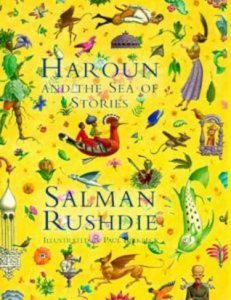
Viking Children’s, Reprint Edition, August 1999.
The book disappointed – I don’t think I got to chapter two, to be honest. That purchase bought me street cred, however, when addressing my 8th graders last year as we discussed another novel of Rushdie’s, HAROUN AND THE SEA OF STORIES, which he’d written for his pre-teen son while on the run. Students soaked up its wondrous, witty blend of Eastern and Western cultures.
But what won them over is the idea that Rushdie didn’t quit, didn’t give in when censored, and wouldn’t be silenced. And neither would we, the American reading public. I read to students an excerpt of a letter Rushdie wrote to US bookstores, who were largely alone in defying the fatwa:
“The independent booksellers of America put the book in windows, mounted special displays, and courageously stood up for freedom against censorship, refusing to allow the choices of American readers to be limited by the threats of an angry despotic cleric far away.
“The bravery of independent booksellers influenced other stores to follow their lead, and in the end a key battle for free expression was won—not by politicians who, as usual, arrived cautiously and tardily at the battlefield, but by the determination of ordinary people that it not be lost” (from Salman Rushdie’s JOSEPH ANTON).
Whenever I’m dismayed that books still get yanked from American shelves, I think of both Roth and Rushdie, about the choices we make and the trust we bestow. I remind myself that there are nearly 120,000 public libraries in our country, and nearly 13,000 bookstores. Last year, the American Library Association logged just 310 reports of challenged books.
It’d be so easy to be scared by that number. But I’m not. For every classroom in Arizona that was forced two years ago to remove Sandra Cisneros’ THE HOUSE ON MANGO STREET when so-called Ethnic Studies were banned, there were teachers like the one in my school who immediately put it on her syllabus. In Arizona. No one got arrested, the state superintendent lost re-election, and a movement was launched.
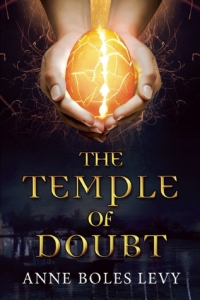
Sky Pony Press, August 2015.
The First Amendment is still the law of the land. Far from failing in our duty to protect innocent eyes from unseemly things, we authors, teachers, librarians, and parents are doing the daily work of a democracy by encouraging what Supreme Court Justice William O. Douglas called the free marketplace of ideas.
My parents died along ago, but I remember their trust. I see in my students a similar willingness to come to their own conclusions, and a fierce desire to support others’ right to do so as well.
In time, they will be the ordinary people Rushdie spoke of, and this battle will be theirs.
Let’s trust them to make up their own minds.
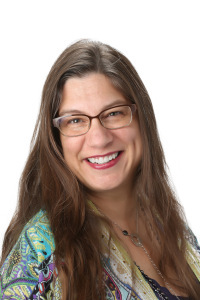
Anne Boles Levy.
Anne Boles Levy currently teaches English to middle schoolers after more than two decades writing and editing for print, web, and radio. Anne is a graduate of Smith College and studied abroad at University College London, and she has her master’s in journalism from Columbia University. She cofounded and now runs the Cybils Awards (www.cybils.com), the only awards by book bloggers for kids’ and young adult titles. She’s also an amateur silversmith and the absentminded wife to her long-suffering husband, Brett. They run around after two children and a cat in Scottsdale, Arizona.






